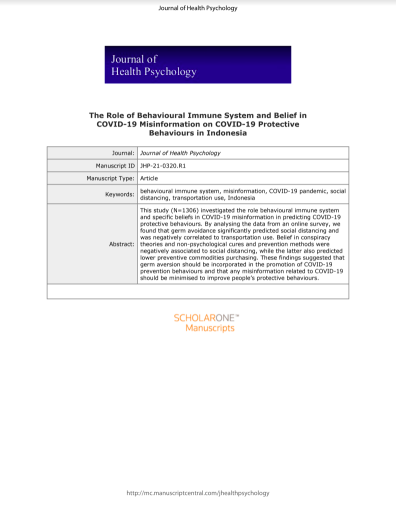This study (N = 1306) investigated the role behavioral immune system and specific beliefs in COVID-19 misinformation in predicting COVID-19 protective behaviours. By analysing the data from an online survey, we found that germ avoidance significantly predicted social distancing and was negatively correlated to transportation use. Belief in conspiracy theories and non-psychological cures and prevention methods were negatively associated to social distancing, while the latter also predicted lower preventive commodities purchasing. These findings suggested that germ aversion should be incorporated in the promotion of COVID-19 prevention behaviours and that any misinformation related to COVID-19 should be minimized to improve people’s protective behaviours.

Research
.png)